Facilitated by EBN, certified EU|BICs and Associate members have been instrumental in providing technical, talent, and financial resources, guidance, and connections for startups and SMEs, contributing significantly to positive societal impact. Over the last 40 years, we've witnessed how innovation can address systemic crises across various dimensions.
Since its inception, European Business and Innovation Centres (EU|BICs) have aimed to support regional economic development by fostering innovative startups and helping existing SMEs modernise and innovate. The pan-European innovation community of certified EU|BICs, guided by EBN, have played a pivotal role in Europe’s innovation and entrepreneurship ecosystem. Originating as far back as 1984, the network acts as a response to Europe’s need to restructure its industrial base and embrace new technologies, innovation, and entrepreneurship.
Scroll down the timeline celebrating 40 years of collaboration in the pan-European EU|BIC innovation community here below.
 Connecting innovation communities
Connecting innovation communities
40 YEARS:

Organisation
First European Business and Innovation Centre (BIC) established.
Count Etienne Davignon (former Vice President, European Commission) founded the first BIC guided by the strategic direction to restructure European industry as formulated in the first European Framework Programme for Research and Technological Development – FP1 (1984-1987).

EBN was officially established with the support of the European Commission, Directorate General Regional and Urban Policy (REGIO) and industry leaders.
The first chairman was Count Etienne Davignon, while Romano Prodi, Lord Carr and Alain Minc were other influential Board Members.

The EC-BIC monitoring and quality assessment framework was developed along with a set of standards to recognise EC-BIC excellence and maintain its quality-certified reputation.

First BIC outside the EU opened in the Czech and Slovak Republics.

First annual EBN Congress takes place in Thessaloniki (Greece).
We will proudly organise and bring together the global entrepreneurship support organisation (ESO) community, including the EU|BICs and partners during the 33rd edition of EBN Congress ‘Sustainable Industrialisation’ in Nantes (France), June 2024.

EC-BICs lauded for their outstanding work done, in tune with the needs of small businesses, and highlighted their services as perfectly suited to the development of innovation policies. (European Commission external evaluation study on the EC-BIC programme 1984-1997)

EC-BICs integrated into mainstream EC Structural Funds – Guidelines of the programmes in the period 2000-06 recommended EC-BICs as powerful instruments in implementing regional programmes.

The EC officially granted EBN the exclusive license of the EC-BIC trademark.
Increased recognition of the network by EC-DG Enterprise, DG Research and the European Space Agency (ESA).

ESA-BIC concept launched in partnership with European Space Agency (ESA) and ESTEC, under the work carried out in the European Space Incubators Network (ESINET) as an experimental thematic platform for the transfer of knowledge and technologies in the field of space.

DG REGIO commissioned publication by EBN.
‘The Smart Guide to Innovation-Based Incubators (IBI)’

EC-BIC label becomes EU|BIC and its mandate is naturally moved from DG XVI (Regional Policy) to EC Directorate-General Internal Market, Industry, Entrepreneurship and SMEs (DG GROW).

European Court of Auditors assessed the effectiveness of incubators funded by ERDF Structural Funds. The results showed that offering the EU|BIC set of services delivers much better results than simple physical incubation. Higher startup rates, survival rates, job creation and sustainability. (Source report copy: Policy Commons.)

100+ EU|BICs in the pan-European community, actively supported 23,400 innovation businesses, 56% of which are (deep)tech start-ups and SMEs.

EC Directorate-General International Partnership (DG INTPA) starts a multi-year collaboration with EBN to establish the BIC Africa network in Somalia, Angola, Madagascar, and Ethiopia – now seeking to expand to other countries in Africa.

First unicorn company: Feedzai reaches unicorn valuation status, with support from the start of EU|BIC Instituto Pedro Nunes (Portugal).
EU|BICs are transforming into breading grounds for European startup growth up to company valuations of >1 bn euros.

30+ EU|BICs function as official EU Digital Innovation Hubs, leading the digital transformation collaboratively. European Digital Innovation Hubs (EDIHs) are one-stop shops supporting companies and public sector organisations to respond to digital challenges and become more competitive.

EBN reformulates its EBN Special Interest Groups, aligned with the EC Industrial Clusters, bringing together 360+ innovation experts around key topics from Sustainability, Energy, Agrifood and Health, to Energy, Manufacturing, Defence, Space, and Digital Industries.

Forbes recognises South Moravia/Brno region, supported by EU|BIC JIC as an innovation hotbed while honouring its rich history in the textile industry.

EU|BICs are trusted EIC Ecosystem Partners and numerous operate under the EIC Seal of Excellence to provide a steady stream of excellent candidates and beneficiaries of the key EIC instruments.

EU|BICs annually report their impact, for 2023: 36,000+ startups/SMEs supported. Close to 1 billion euros funding raised. 16,000 high-quality jobs created. Above-average company 3-year survival rates of 82% 3-year.

 Uniting innovation communities
Uniting innovation communities
Charting New Paths for Today and an Interconnected, Cohesive Tomorrow

EBN connects the largest pan-European/global network of quality-certified entrepreneurship support organisations counting over 170 quality-certified and Associate EU|BIC members. Each of our members shares are sharing a similar mission: to increase the innovation capacity, for all of Europe – ultimately driving greater well-being for citizens.
Guided by the unwavering belief in innovation as a potent force for economic growth, social progress, and environmental sustainability, EBN and the EU|BIC community have played a pivotal role in fostering regional development and job creation.
As we enter 2024, we are commemorating 40 years of collaborative efforts within the pan-European EU|BIC innovation community. This celebration marks a milestone in the enduring partnership among EU|BICs (European Business and Innovation Centres), European/ national/ regional institutions, academia, industry, and innovative enterprises.
Guided by the unwavering belief in innovation as a potent force for economic growth, social progress, and environmental sustainability, EBN and the EU|BIC community have played a pivotal role in fostering regional development and job creation.
As we enter 2024, we are commemorating 40 years of collaborative efforts within the pan-European EU|BIC innovation community. This celebration marks a milestone in the enduring partnership among EU|BICs (European Business and Innovation Centres), European/ national/ regional institutions, academia, industry, and innovative enterprises.
Together, we are building dynamic ecosystems that foster growth, and entrepreneurship, and tackle global challenges. By strengthening and adapting our innovation ecosystems, we ensure sustainable progress and drive impactful innovation aligned with the United Nations Sustainable Development Goals. In this context, we are pleased with the support and endorsement found among EBN’s long-lasting institutional partners for innovation ecosystem building.
Regional innovation ecosystems are key in addressing local challenges by leveraging local resources and networks. They support the development of context-specific solutions, ensuring relevance, effectiveness, and local ownership. Our efforts align with European strategies and initiatives such as the European Green Deal and the Horizon Europe Programme, demonstrating our commitment to sustainable growth and competitiveness.’
Regional innovation ecosystems are key in addressing local challenges by leveraging local resources and networks. They support the development of context-specific solutions, ensuring relevance, effectiveness, and local ownership. Our efforts align with European strategies and initiatives such as the European Green Deal and the Horizon Europe Programme, demonstrating our commitment to sustainable growth and competitiveness.’


Snapshot: 10 years of Impact
400,000
Jobs created
Since 2004, the community has created 400,000 jobs and supported over half a million companies.
64,000
Events organized
EU|BIC community members have organised 64,000 events since 2004, averaging more than 4,000 entrepreneurship support events annually.
15 billions
Euros raised
Over 15 billion euros have been raised since 2010, with 1.2 billion euros annually, primarily from emerging innovator regions.
Incubators
Shift in membership composition
Incubators (university-linked) and accelerators now dominate the membership, overtaking tech and science parks. They embrace a more inclusive, early-stage (deep)tech innovation support approach.
Internationalisation
services
Approximately 90% of members offer internationalisation services, facilitating the cross-regional scaling of businesses.
Evolution of Europe's Innovation Landscape
Over four decades, EBN and its partners have played a pivotal role in shaping Europe's innovation ecosystem. The entrepreneurial capabilities within this ecosystem have witnessed significant growth, encompassing various stakeholders from regional government institutions and academic spin-offs to a diverse array of entrepreneurs.In collaboration with EU institutional partners, EBN and EU|BICs actively contribute to fostering resilient economic and political partnerships, placing entrepreneurship and innovation at the core.
We are proud to contribute to improving regional competitiveness, enhancing innovation capacities in emerging regions, and contributing to the digital transition fully embracing the information era supported by the innovation potential of well-developed startup ecosystems.

EU|BIC: One official quality certificate increasing innovation capacity for the whole of Europe

EU|BIC Innovation Community
Granted by EBN, the EU|BIC Certification and trademark is a highly selective status originated by the European Commission.
Certified EU|BICs are organisations that meet the highest verified standards of business support services to ensure innovative entrepreneurs thrive.
Being an EU|BIC means responding to our mission to use business and innovation as a force for regional development with the best possible actions to create thriving startups and SMEs.
Certifying as an EU|BIC goes beyond the product or service-level certification. EU|BIC is the only certification that measures all aspects of your organisation’s socio-economic performance. It does not just provide tangible proof of where entrepreneurship support organisations (ESOs) excel - it commits them to consider your impact on the region.
Members of the EU|BIC community take real steps to ensure that their services are best advantageous to their clients and to their regions.
Certified EU|BICs are organisations that meet the highest verified standards of business support services to ensure innovative entrepreneurs thrive.
Being an EU|BIC means responding to our mission to use business and innovation as a force for regional development with the best possible actions to create thriving startups and SMEs.
Certifying as an EU|BIC goes beyond the product or service-level certification. EU|BIC is the only certification that measures all aspects of your organisation’s socio-economic performance. It does not just provide tangible proof of where entrepreneurship support organisations (ESOs) excel - it commits them to consider your impact on the region.
Members of the EU|BIC community take real steps to ensure that their services are best advantageous to their clients and to their regions.
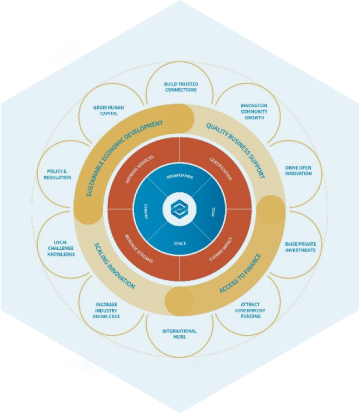
Innovation Ecosystem Building and Management
EBN’s EU|BIC Innovation Ecosystem Framework serves to provide a comprehensive, multi-actor structure with hands-on tools for incubators, accelerators, science and technology parks and other innovation actors in accelerating collaborative innovation for (regional) sustainable economic development.
Establishing robust and dynamic innovation ecosystems is vital for driving economic growth, fostering entrepreneurship, and addressing global challenges. Consisting of networks of organisations and institutions, including enterprises, educational and research institutions, financial entities, and government agencies they promote collaboration, partnership, and knowledge sharing - an environment that facilitates effective problem-solving.
Innovation ecosystems provide a fertile ground for research, innovation, and startups to thrive by offering resources, mentorship, and networking opportunities. They play a crucial role in transforming innovative concepts into successful ventures that address societal and environmental challenges. Reflecting on the rising interest in nurturing deep tech science and companies, research, infrastructural and financial development activities, Europe’s innovation ecosystems are instrumental in driving the creation of new technologies and innovations, contributing to societal progress and EU competitiveness.
Establishing robust and dynamic innovation ecosystems is vital for driving economic growth, fostering entrepreneurship, and addressing global challenges. Consisting of networks of organisations and institutions, including enterprises, educational and research institutions, financial entities, and government agencies they promote collaboration, partnership, and knowledge sharing - an environment that facilitates effective problem-solving.
Innovation ecosystems provide a fertile ground for research, innovation, and startups to thrive by offering resources, mentorship, and networking opportunities. They play a crucial role in transforming innovative concepts into successful ventures that address societal and environmental challenges. Reflecting on the rising interest in nurturing deep tech science and companies, research, infrastructural and financial development activities, Europe’s innovation ecosystems are instrumental in driving the creation of new technologies and innovations, contributing to societal progress and EU competitiveness.
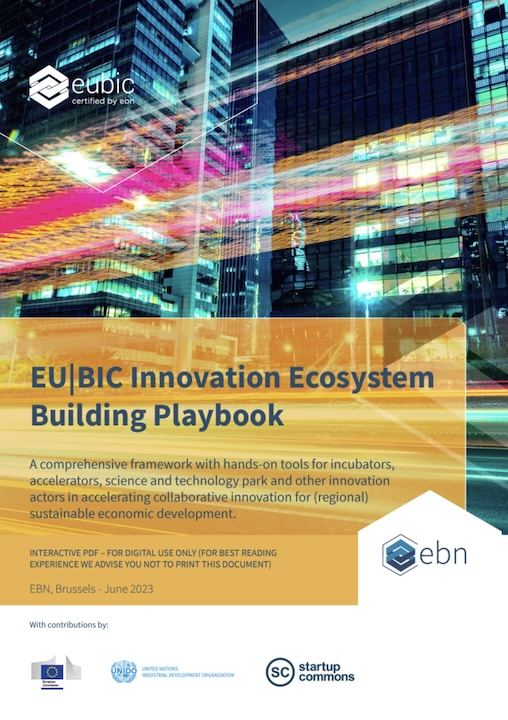
Get started: EU|BIC Innovation Ecosystem Building Playbook
The latest EBN publication highlights some of the many tools that are implemented and refined daily by our members.
Featuring tools from Europe’s best innovation ecosystem builders, the playbook will help you master cooperation opportunities for startup growth, that many regional innovation actors are challenged with. It includes:
- Insights on the role of European innovation ecosystems in addressing global challenges and impact on UN SDGs.
- Examples of tools that better connect stakeholders, improve service delivery, help gain recognition of excellence, and build trusted connections for pan-European and global innovation.
- Methodological roadmaps for all innovation stakeholders to strengthen their local startup and innovation ecosystems, offered via the comprehensive EU|BIC Innovation Ecosystem Framework.
- How regional innovation ecosystems play a significant role in addressing local-global challenges by leveraging local resources, expertise, and networks.
- Tips for accelerators/incubators, science and technology parks and business innovation supporters on how to coordinate cooperation between ecosystem actors.
- Expert tools to meet the growing demand for new, strengthened, and connected innovation ecosystems in Europe.
EU|BIC Community’s Impact 2022-2023: Transformational strength of Europe’s innovation ecosystems.
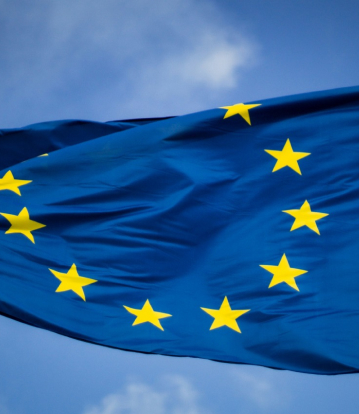
EU|BIC Innovation Community
EU|BICs are an important component of regional innovation ecosystems in all regions where they exist. Their position is leveraged most when EU|BICs play an active role in orchestrating the innovation ecosystem or they act as developers of the region’s Innovation strategy. Those who do this successfully assert the creative power of local entrepreneurs, steer different support mechanisms, and co-design instruments to accelerate the transformation of regional economies.
As a pan-European community, we concentrate our efforts around four mission commitments:
1. Regional, sustainable economic development
2. Quality Business Support
3. Access to Finance
4. Scaling European Innovation.
We believe these four-mission elements form the core building blocks of a well-performing innovation ecosystem.
As a pan-European community, we concentrate our efforts around four mission commitments:
1. Regional, sustainable economic development
2. Quality Business Support
3. Access to Finance
4. Scaling European Innovation.
We believe these four-mission elements form the core building blocks of a well-performing innovation ecosystem.
Top 5 sectors and industries represented by EU|BICs.
Energy,
Manufacturing,
and Electronics
Manufacturing,
and Electronics

Sustainability
and Agrifood
and Agrifood

Digital, Creative,
and Cultural Industries
and Cultural Industries

Space, Mobility,
and Defence
and Defence

Health

More than 90% of EU|BICs operate as generic or mixed-sector experts, Sustainability (green innovation) and Smart Manufacturing areas are well-represented - with almost all EU|BICs being experts in these areas.
Approximately 40% of EU|BICs also specialise in social and inclusive entrepreneurship.
Approximately 40% of EU|BICs also specialise in social and inclusive entrepreneurship.
Companies (startups, scale-ups, SMEs) supported by EU|BICs in 2023 created:
15,900+
Jobs created
3,770+
Companies helped
306
Jobs created per EU|BIC

Business support services
EU|BICs provide a comprehensive set of innovation and business support services along the full entrepreneurial journey from ideation to scaling and internationalisation.
Highlighting services provided by most of the EU|BIC community, these include:
Highlighting services provided by most of the EU|BIC community, these include:
- Ideation phase services: proof of business (92%) and access to pre-seed funding (89%).
- Startup services: coaching/mentoring (92%), financing and funding (89%), as well as access to markets (83%) were services provided to startups.
- Growth Services: access to funding (90%) and access to markets (73%) were supported at this stage of growth.
- In total, companies supported by EU|BICs filed close to 1,000 patents.
Total amount of funding raised in 2023:
874 m€
80% private and 20% public sources
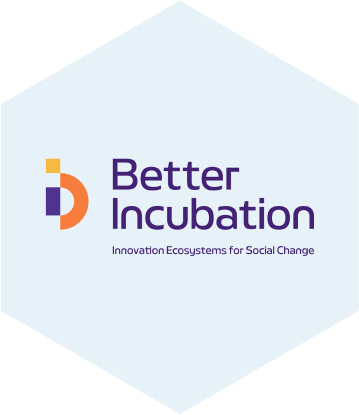
Towards a more inclusive and impact-driven approach to innovative entrepreneurship
Facilitated by three partner networks EBN, Impact Hub and Impact Europe (former European Venture Philanthropy Association), the Better Incubation initiative aims to kickstart an “eco-systemic” change bringing incubation and business support services closer to the whole society to promote entrepreneurship and self-employment as means to create jobs, develop skills and give unemployed and vulnerable people an opportunity to fully participate in society and the economy.
Better Incubation empowers Entrepreneurship Support Organisations (including EU|BICs, Impact Hubs, and investors for impact) to grow their capacities and expand their outreach to inclusive and social entrepreneurship, helping social entrepreneurs and potential entrepreneurs from Under-Represented Groups (URG) to access available financial tools and increase their businesses’ chances of survival and growth.
Better Incubation invites you to engage with and achieve the transformational impact of the business and innovation support ecosystems, working together towards a sustainable “better incubation ecosystem”, open to all kinds of entrepreneurs.
Better Incubation empowers Entrepreneurship Support Organisations (including EU|BICs, Impact Hubs, and investors for impact) to grow their capacities and expand their outreach to inclusive and social entrepreneurship, helping social entrepreneurs and potential entrepreneurs from Under-Represented Groups (URG) to access available financial tools and increase their businesses’ chances of survival and growth.
Better Incubation invites you to engage with and achieve the transformational impact of the business and innovation support ecosystems, working together towards a sustainable “better incubation ecosystem”, open to all kinds of entrepreneurs.
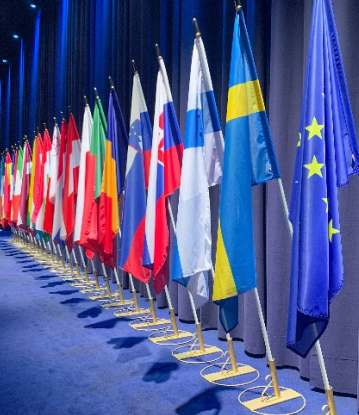
The central role of business and innovation intermediaries
Business/ entrepreneurship support organisations (ESO/ BSOs), such as incubators, accelerators, science and technology parks and innovation hubs, are vital actors within innovation ecosystems. They play a pivotal role in supporting innovation and entrepreneurship by providing comprehensive incubation and acceleration services for startups and SMEs.
ESOs offer physical space, resources, mentorship, and networking opportunities to nurture the growth of early-stage startups. They also facilitate collaboration and knowledge transfer through science parks and innovation hubs, bringing together diverse stakeholders to co-create and share ideas.
Quality-certified BSOs, distinguished by the EU|BIC label granted by EBN, provide comprehensive incubation and acceleration processes, promoting innovation in startups and SMEs throughout their development stages. Within this framework, BSOs are positioned as the central and coordinating actors of innovation and entrepreneurial ecosystem. Even though their main purpose is identical, organisational characteristics vary and can be summarised in the following categories:
ESOs offer physical space, resources, mentorship, and networking opportunities to nurture the growth of early-stage startups. They also facilitate collaboration and knowledge transfer through science parks and innovation hubs, bringing together diverse stakeholders to co-create and share ideas.
Quality-certified BSOs, distinguished by the EU|BIC label granted by EBN, provide comprehensive incubation and acceleration processes, promoting innovation in startups and SMEs throughout their development stages. Within this framework, BSOs are positioned as the central and coordinating actors of innovation and entrepreneurial ecosystem. Even though their main purpose is identical, organisational characteristics vary and can be summarised in the following categories:
- Incubators, accelerators, innovation hubs, venture builders, business support organisations
- Chambers of commerce, business, and startup associations
- Universities and Research Institutions
- Business angels, impact funds, seed, and venture capital firms.

Focusing on the Future: The Green Transition
Looking ahead, our focus centres on collaboration and innovation ecosystem approaches, addressing Europe's most pressing challenge: the green transition. EBN aims to serve as an open dialogue expert platform, allowing for the rapid testing of assumptions and the creation of pathways that enhance the private sector's effective involvement.
From academic innovators, startups, SMEs and investors to corporates and industry leaders, we aim to redefine wellbeing and promote new collaborative business and innovation models, emphasising measurable progress towards regional sustainable economic development.
From academic innovators, startups, SMEs and investors to corporates and industry leaders, we aim to redefine wellbeing and promote new collaborative business and innovation models, emphasising measurable progress towards regional sustainable economic development.

